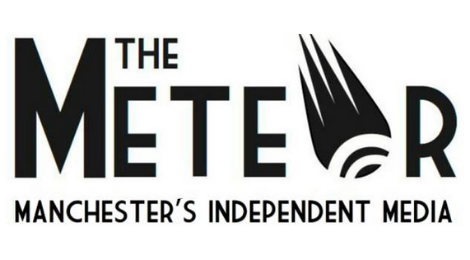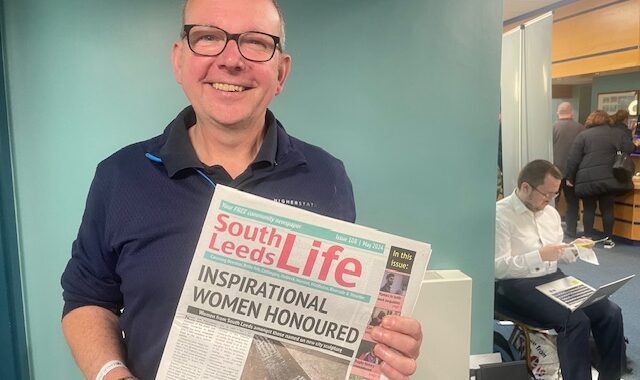Last week, July 4th, ICNN member The Meteor, Manchester’s online independent media publication, became a cooperative.
At an event in Manchester’s Methodist Central Hall the event was billed as Independence Day for Manchester’s media.
“The Meteor media co-op: a democratic media for Manchester.”
It was an evening of performance, celebration and active discussion on the current state of Manchester’s local media and how through a co-operative model of ownership, issues around representation and diversity, and perhaps most importantly sustainability, could be addressed.
The Meteor is a not-for-profit independently run organisation with a keen focus on community, social justice for those that are neglected by the traditional press. It prides itself on challenging local power structures and tackling urgent and pressing issues ‘from the everyday to the earth-shattering’.
We caught up with co-editor of The Meteor, Conrad Bower before last week’s event to find out why launching a coop was the right way to go for this particular independent community news outlet.
Matt: How did the Meteor come about?
Conrad Bower: In 2015, myself and Alice Toomer-McAlpine, who is the co-editor at The Meteor as well, signed up to a community media course put on by the remaining active member of the Manchester Mule.
(The Manchester Mule was a non-profit, Manchester-based independent media project that ran from 2006 until 2015. It had a quarterly print run of 10,000.)
It was a ten-week comprehensive journalism course and when we finished we published articles in the Mule. At the time the Mule was set up as a limited company but the owner wanted to wrap it up so he passed on all the social media assets to what would become the team behind The Meteor and we put up a new website in October 2016.
We are mainly online but we have special one-off issues. We did one called Not the Fake News in collaboration with Manchester University Migration Lab and a few other organisations. For that issue, we spent the day talking to refugees in the region.
The next one was The Meteor Explores Homelessness in Manchester which, as an issue, is still growing despite actions to try to combat it by the City Council and Andy Burnham.
The news earlier in the year about the rough sleepers count (which is a crap measurement by the way because the majority of it is estimated) for the Greater Manchester region, was that there was a two per cent decrease, but in Manchester, there was a 34 per cent increase which just wasn’t being covered.
We had funding from Lush Cosmetics to put that issue together after we put a proposal into the Lush Charity Pot saying we’d like to do an investigation into homelessness in Manchester and they put up some money for it. They commissioned us to go to the Lush summit to present our publication on homelessness and that led to our third publication covering the charity and humanitarian work being done by them.
M: Do you have any plans for another printed issue any time soon?
CB: As we are setting up as a cooperative we are putting together a piece on cooperative Manchester – looking into everything cooperative in and about Manchester. Manchester is the birthplace of the cooperative movement. In 1844, 28 Rochdale pioneers banded together to set up their own shops so they weren’t being ripped off by the company stores. So there is a great history here to report on. And we want to investigate the past, present, and future of cooperatives.
M: Did you choose July 4th specifically to celebrate the independence of The Meteor?
CB: We chose this date because it’s two days before Coops Day. But it’s also within the cooperative fortnight carrying on until the 7th July.
We’re here to discuss the issues around traditional media and the crisis it’s in, and the opportunities that independent media can offer to counter that crisis. But also alternative models of ownership and how they can contribute to combat that crisis.
We’ve been planning to become a cooperative since last year when we held a public meeting. It’s quite a long and arduous task setting up a cooperative.
M: I can imagine. There aren’t many out there. Among our members, only the Bristol Cable and the Ferret are cooperatives.
CB: It’s quite a tricky process to go through. We had submitted our papers to the FCA a month or so ago and so we didn’t know when we’d be incorporated until they got back to us. Originally, we set up as a community benefit society and put in six amendments to the standard sort of rules of a CBS and we had to see if they were acceptable to the FCA and luckily today they came back and approved us.
M: What are the benefits of being a cooperative?
CB: We’ve chosen a cooperative business model to try to get as many people involved in this organisation as possible and give them a chance to have a say in what our editorial line is, what particular investigations we’re going to focus on and ultimately have a say in their own media.
You mention the Bristol Cable and the Ferret who are both doing excellent work in increasing that two-way communication between readers and publishers – they’re overturning the one-way paradigm of traditional media.
We think the cooperative will appeal to people because journalism is hitting an all-time low in opinion polls.
M: I think journalists are only slightly above politicians on that index…
CB: Exactly. And a lot of that is down to the billionaire press barons that are running the press and the largely unaccountable corporations they run, so that’s something we’re definitely trying to challenge. We want as many people to get involved. We think that will give our journalism weight – and ensure a broad public mandate behind it. Not just promoting the agenda of a particular boss in a newspaper office somewhere but a positive mandate from our members that directs our journalism.
And, we are a not-for-profit organisation!
M: Is there any revenue that comes from being a cooperative that could help the Meteor be sustainable?
CB: That is one of our revenue streams – we’re offering membership of the coop for a minimum of £1 per month so anyone can sign-up. The Bristol Cable set up as a CBS in 2014 and I think they’ve got about 2,000 members paying on average of £3 each so that would be a great stream of income for us.
We’re going to be grant dependent for the first few years definitely, but we are going to be pursuing others, including another printed edition for which we’ll get advertising revenue. You just don’t get the advertising numbers as a small independent online publication that will support you, so it’s always better to get advertising revenue through printed material.
We’re also going to be looking at supported content. We’ve done a couple of supported content stories so far. One for Realising Just Cities – a project with the University of Sheffield that we put out recently, and we did another one with Manchester Housing Action looking at alternative models of ownership. So supported content is definitely going to be one of our other options for revenue.
M: Tell me about the media landscape in Manchester at the moment. Is it healthy? Is it thriving? Is independent media thriving here?
CB: Well, there’s us, The Salford Star, the Wythenshawe Reporter, Now Then Manchester, Manchester Confidential, but the main source of online news for the Greater Manchester area is the Manchester Evening News (MEN).
M: It’s a behemoth isn’t it?
CB: It is. We can’t compete with them, so we have to offer them something different – a focus on social justice issues that maybe the MEN doesn’t cover. Sometimes though, we’ll cover issues before the MEN gets to them. Recently, there was a rooftop protest on the arms factory in Oldham owned by Elbit Ferranti. Protesters from Manchester Palestine Action (A network of people in Manchester taking action against perceived Israeli apartheid through boycott, divestment and sanctions campaigns) occupied the rooftop to protest about components from that factory going into drones that are used over Gaza. We published a story on that on the Monday and I don’t think the MEN got to it until late Tuesday or early Wednesday.
We’ve also reported on some of the issues around housing development in the city centre before the MEN got there.
M: How important do you think collaborating with other publications is?
CB: It’s becoming increasingly important to collaborate. As the media landscape gets a bit more rugged I think we have to band together and Bureau Local, who we’ve collaborated with are doing excellent work.
M: Finally what do you think the future of local journalism is?
CB: Hard. A very tricky future, but we’ve got to keep plugging away and hopefully we can make a go of it.
—
The Meteor has Published over 250 stories for our website and 3 printed special editions
It has worked with over 30 contributors, provided free training and creative workshops for more than 70 community members, and engaged and listened to over 200 individuals through holding events and attending others’ across the city.
It has connected and collaborated with over 100 community groups and campaigns through its work.
—
The Meteor upholds the seven cooperative principles:
Autonomy and independence
Members’ economic participation
Education, training and information
Democratic member control
Cooperation among co-ops
Voluntary and open membership
Concern for community
Donate to the Meteor’s Crowdfunder by clicking here. https://www.crowdfunder.co.uk/meteor-media-coop-launch





